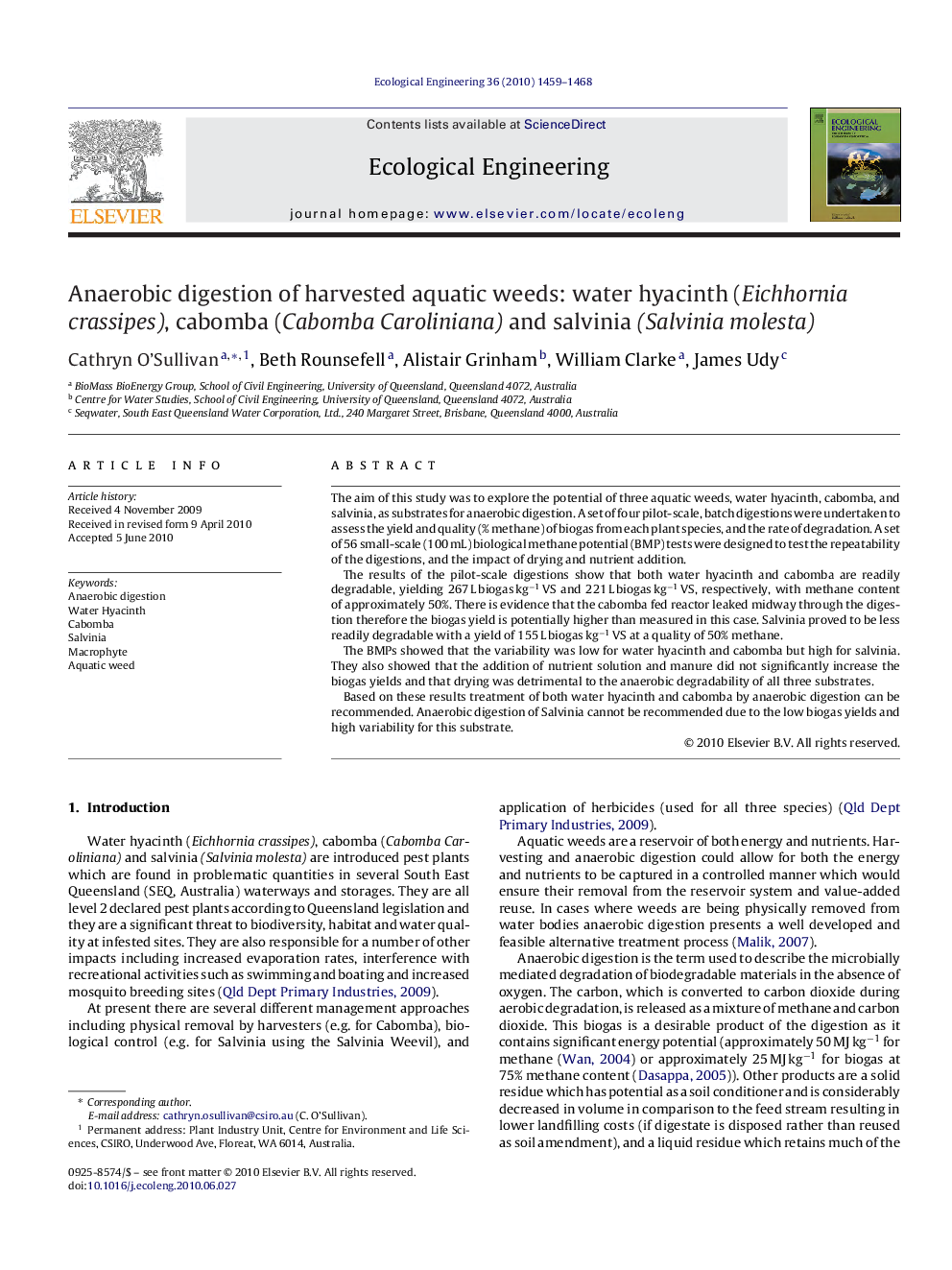| Article ID | Journal | Published Year | Pages | File Type |
|---|---|---|---|---|
| 4390596 | Ecological Engineering | 2010 | 10 Pages |
The aim of this study was to explore the potential of three aquatic weeds, water hyacinth, cabomba, and salvinia, as substrates for anaerobic digestion. A set of four pilot-scale, batch digestions were undertaken to assess the yield and quality (% methane) of biogas from each plant species, and the rate of degradation. A set of 56 small-scale (100 mL) biological methane potential (BMP) tests were designed to test the repeatability of the digestions, and the impact of drying and nutrient addition.The results of the pilot-scale digestions show that both water hyacinth and cabomba are readily degradable, yielding 267 L biogas kg−1 VS and 221 L biogas kg−1 VS, respectively, with methane content of approximately 50%. There is evidence that the cabomba fed reactor leaked midway through the digestion therefore the biogas yield is potentially higher than measured in this case. Salvinia proved to be less readily degradable with a yield of 155 L biogas kg−1 VS at a quality of 50% methane.The BMPs showed that the variability was low for water hyacinth and cabomba but high for salvinia. They also showed that the addition of nutrient solution and manure did not significantly increase the biogas yields and that drying was detrimental to the anaerobic degradability of all three substrates.Based on these results treatment of both water hyacinth and cabomba by anaerobic digestion can be recommended. Anaerobic digestion of Salvinia cannot be recommended due to the low biogas yields and high variability for this substrate.
